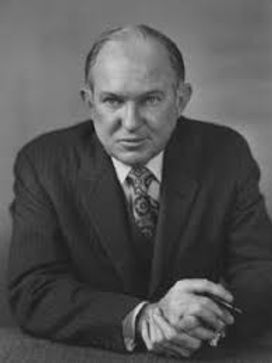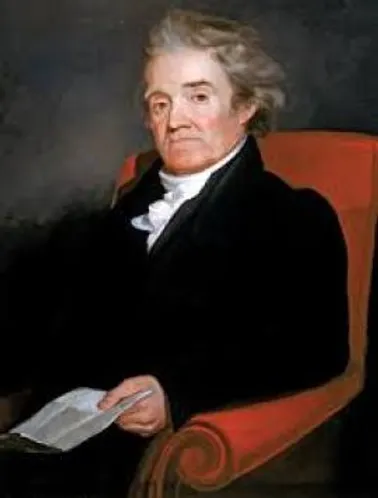Noah Webster
Today is D Day. Excuse me, not that D Day, which was June 6, not October 16. And that year was 1944, when military forces of the United States, mainly, and a coalition of other Democratic nations crossed the English Channel in a vast armada of ships and boats, landing on the beaches of Normandy, France, to confront the Nazi forces of Germany. It became known as the D Day invasion.
The day I’m celebrating harks back to 1806, when Noah Webster published his first dictionary, A Compendious Dictionary of the English Language, becoming known as the father of the American dictionary.
Compendious? I’ll bet he called it that so people would have to use it to find the word’s meaning: “concise but comprehensive,” in my Webster’s New World. So maybe old Noah was a shrewd businessman as well as a language lover. At any rate, I’ve done my duty, observing the anniversary of his birth by learning a new word.
October 16 is National Dictionary Day, a holiday so little known and uncelebrated that I couldn’t even find the year it was declared, or by whom or what. But I’m all for anything that draws attention to the English language, or more precisely, American English. Because it needs a lot of love and tender care these days, when acronyms and other word-abbreviating devices (e.g., “ur” or “your” for “you’re”) are so abundant that you’d think all those people texting nonstop on their cellphones (was that redundant?) actually had important things to communicate.

D Day, June 6, 1944
Here’s an example of an acronym that I just came across in a book review on Goodreads: “I would have marked this (book) as a DNF.” I think she meant “did not finish.” But who knows, maybe she meant “definitely not funny”?
Few bother to check on words’ spellings or meanings anymore. Thus, “personable” is used to mean an attractive personality, though it originally referred to one’s physical appearance. The phrase “hark back,” which harks back to 1829, has become “hearken back,” although that metamorphosis appears to have come about as long ago as 1933. That’s understandable: People didn’t have money to buy dictionaries during the Great Depression. And then there’s “nonplussed,” which a lot of people think of as meaning “not flustered” or “not confused,” when it means just the opposite, i.e., “perplexed” or “puzzled.”

The Great Depression
Spellings also change because of frequent misconceptions. The phrase formerly was “all right,” and The Associated Press Stylebook has steadfastly insisted that “alright” is wrong, while Webster’s accommodates both versions. “Tranquillity” was the original spelling, but so many people misspelled it “tranquility” that dictionaries began accepting the one-l spelling some years ago. One wonders if Noah is turning in his grave at the bastardization of words that he spent 26 years compiling.
Even outside the dictionary, American English is undergoing helter-
skelter transformation, as little heed is paid to the rules – the late journalist James Kilpatrick called them “guidelines” – for usage, punctuation and the other mechanics of writing.
The most wretched misuse of the language these days, in the opinion of the Grammar Grouch, is the nonsensical combination of “between” and “to.” “The estimated cost of the legislation was between $5 billion to $6 billion.” How any writer could fail to curl up in the fetal position at the sound of that is beyond me. It. Makes. No. Sense. You can’t have something between x TO y. That is a non-sentence. The cost was between $5 billion AND $6 billion. On Sept. 21, a Zacks stock investment service email says, “A pullback of between 10% to 19.99% is called a correction.” Another correction is a replacement of “to” with “and.” Every time I see the phrase “between x TO y, a destructive urge erupts in my brain and body, and I want to dial the grammar police and have the writer charged with flagrant grammatical abuse. I can’t comprehend how any American who grew up with English as hiser primary language could fail to hear how god-awful the between-to combination sounds.
“Hiser?” That’s my genderless pronoun, which I invented because I refuse to use the plural “they” or “their” for a person when I don’t know the gender. I’ve devised an entire genderless sequence: “hesh” for he or she, “herm” for her or him, “hisers” for his or hers. More on that in a future newsletter.
“More importantly” and “most importantly.” Those introductory phrases have become ubiquitous. Everybody thinks hesh has to attach that confounded “ly” appendage to “important.” I suppose it sounds more important. But it’s superfluous. The Merriam-Webster’s website goes into a long explanation of why both are supposedly correct, but the gist of the discussion is that use of “more importantly” is okay because everybody’s doing it. Until the 1960s, people were using “more important.” That’s because the phrase is a substitute for “What is more important, …” Thus, important is an adjective modifying the word what. Importantly is an adverb, which is inappropriate in this context.
Further – and I hesitate to besmirch the Merriam-Webster name (Merriam took over the Webster dictionary enterprise after a few decades) on this auspicious anniversary – the explanation had a redundancy that is the subject of my next peeve. In pondering the reason for today’s common preference for “importantly” over “important,” the writer wonders “if perhaps the widely-held disdain for flat adverbs [whatever those are] has anything to do with it.”

James Kilpatrick
And on this writing foible there can be no debate: That hyphen in “widely-held” is redundant, superfluous, unnecessary, and a pain in the rear (I’m a Democrat, so I didn’t want to use its noble animal symbol in vain). Okay, so I violated my own dictum against redundancy; it was necessary for emphasis.
The reason for connecting “widely” with “held” is to show that widely modifies held and not “disdain.” But how in the name of Jehosophat could there be “widely disdain”? It makes no sense. Widely is an adverb and disdain is a noun. Adverbs don’t modify nouns. Widely has to go with held. Hence, the hyphen here is a piece of junk cluttering the copy. Yet this same situation appears ad finitum in newspapers, magazines and every other conceivable print media outlet. Rarely does one encounter the combination of adverb and adjective before a noun without a hyphen stuck between those two identifying parts of speech. Just glancing through today’s newspaper, I come up with another example: “The findings for both states have not been published in peer-reviewed journals.” Ever hear of peer journals? “Peer” has to go with “reviewed,” so no hyphen is needed.
Speaking of redundancies, “any given” pops up every time I open the newspaper. Here’s an editorial on April 11 in none other than the enormously respected New York Times: “And on any given night, half a million Americans are homeless.” You know we’ve reached ground zero when the world’s greatest newspaper makes such a grammatical faux pas. “Any” and “given” mean the same thing. “And on a given night” or “And on any night” are options that avoid redundancy.
Then there’s the pretentious “an historic,” which should be “a historic” – and on and on. My dyspepsia is still gurgling, but I’ve fulminated far too long already. Stay tuned for future forays into the disjointed world of improper American English.

